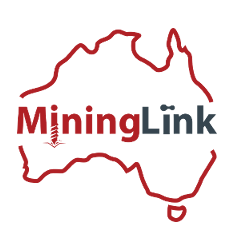Yabulu
http://www.qni.com.au
nickel, Town, DiDo
Phone:
Address:
1 Greenvale Street, Yabulu, QLD, 4818
State: 1 Greenvale Street, Yabulu, QLD, 4818
Email:
The Yabulu nickel and cobalt refinery that is situated 25 kilometres north of Townsville in Queensland, is operated by Queensland Nickel, a company fully owned by Australian mining magnate Clive Palmer. Palmer acquired the company, Queensland Nickel Pty Ltd and the Yabulu refinery, from BHP Billiton in 2009.
Ore Refined at the Yabulu Refinery is Imported From New Caledonia, the Philippines and Indonesia
†The Yabulu refinery commenced refining in 1974 following the building of the town of Greenvale and the completion of the Greenvale to Yabulu railway line. The mining of nickel at Greenvale continued for 18 years, from 1974 to 1992 with the nickel laterite taken to the Yabulu refinery by rail for processing. Ore has been imported into Australia from the Philippines, Indonesia and New Caledonia, to be processed at the Yabulu refinery, since 1986.
The Yabulu refinery employs up to 750 personnel and currently processes around four million tonnes of nickel ore annually as well as exporting approximately 32,000 tonnes of nickel and 2,000 tonnes of cobalt each year.
Yabulu Refinery Processes Lateritic Nickel Ore
The lateritic nickel ore that is refined at the Yabulu refinery is formed as a result of rainwater flowing through near surface rocks for a long period of time until they eventually become weathered. The highest grade lateritic ore is found in tropical and sub-tropical climates where nickel rich outcrops called peridotites are located as surface rocks.
There are two types of lateritic ore, one being limonitic, the uppermost layer, which is best suited to the type of refining being undertaken at the Yabulu refinery and a more silicate type of nickel ore known as saprolite that occurs beneath the limonite ore.
Yabulu Refinery and Townsville Port Celebrate 75 Million Tonnes Import Milestone in 2013
In April 2013 the Yabula refinery celebrated a memorable occasion when it received its 75th†million tonnes of ore from the Townsville port. It was a trade milestone between the Townsville port and the refinery. The refinery owner praised Queensland Rail and Aurizon, Australia's largest freight operator, the Townsville City Council, the Port of Townsville, both State and Federal governments and the people of Townsville who all contributed to the milestone being reached.
Nickel ore is transported from the Townsville port to the Yabulu refinery by rail. When it reaches the refinery it is emptied from the wagons by way of a rotary tippler. The ore is then taken from the tippler by conveyor to a radial stacker. It is then transported by truck from the stacker to the solar drying stockpiles. The reclaimed ore is taken from the solar drying stockpiles along a conveyor system to be fed into three rotary driers where any remaining moisture is removed. Once dry the ore is fed into the ball mills where it is ground until it becomes a fine powder.
When the grinding process is finished the now fine ore is mixed with a fuel oil reductant before being fed into 12 milti-hearth furnaces. It is here where the cobalt and nickel compounds are reduced at extremely high temperatures to reactivate the metals. The hot ore is eventually cooled before being leached in an ammonium carbonate solution that dissolves the nickel and cobalt into soluble amines. The amines are parted from the waste products at this stage by washing in fresh ammonia solution. The waste material is pumped into the tailings dam. The nickel is finally†separated from the cobalt by way of an ammoniacal solvent extraction process. A technology developed at the refinery in 1989.

